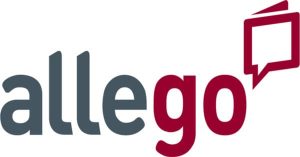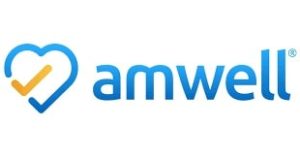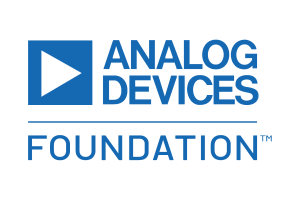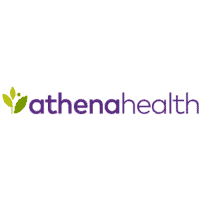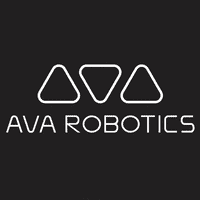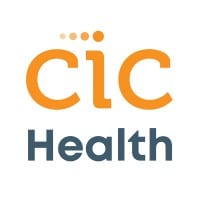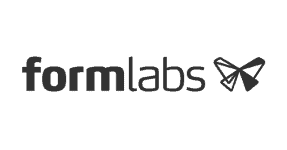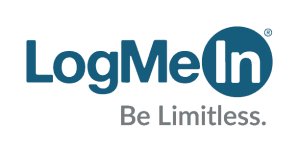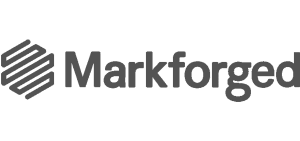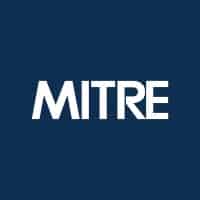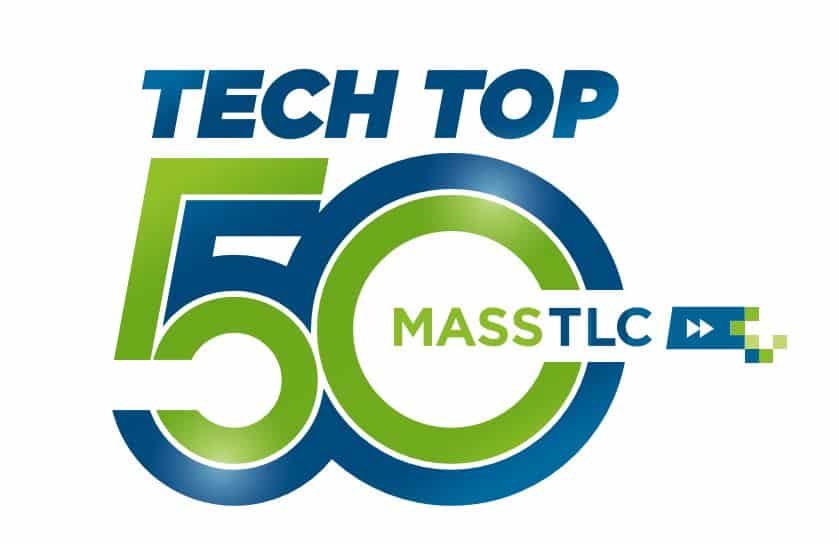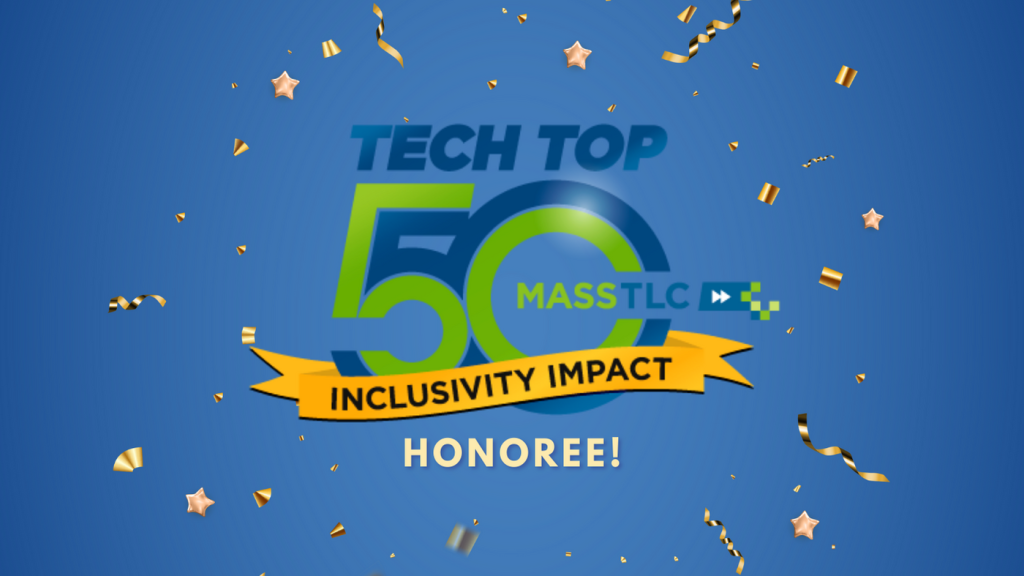The year 2020 has without a doubt been exceptionally unusual, but at MassTLC we have been heartened to see how, in spite of the challenges, our community members have stepped up to support their employees, their customers, their partners, other companies, and the broader community. We have been so impressed that we just couldn’t let the year end without recognizing the companies, individuals, and transformations that have made a positive impact during these trying times.
For that reason, we are pleased to recognize the Tech Top 50. The Tech Top 50 celebrates those that have truly made an impact in 2020 across five categories: Business Accomplishment, Community Impact, Company Culture, COVID-19 Response, and Innovation.
Read on to be inspired!
In the words of their nominators, meet the 2020 “Tech Top 50: COVID-19 Response” honorees.
The COVID-19 Response category recognizes the companies and individuals whose response to the COVID-19 pandemic has had a meaningful impact on the lives and livelihoods of others in our community. Examples include technologies or initiatives to help healthcare workers, companies, citizens
___
|
In early April, cases of COVID-19 spiked and hospitals started receiving ventilator models they weren’t familiar with. Many clinicians, who aren’t usually responsible for ventilators, were being called in from other areas of the hospital to help out. Without proper training, frontline healthcare workers couldn’t act quickly to treat patients suffering from COVID-19 related respiratory distress. Recognizing this significant industry-wide training gap, Medtronic quickly reached out to competitors around the globe and formed the Ventilator Training Alliance (VTA), an altruistic effort to help the heroes fighting COVID-19 through an industry-wide collaboration. Medtronic also tapped learning and enablement provider Allego, who using its proprietary training and collaboration technology, launched a centralized knowledge hub, ”the VTA app,” that connects frontline medical providers with critical information from ventilator manufacturers. With the help of Allego’s modern learning technology and instructional content from the ventilator manufacturers, medical professionals can now access how-to videos, manuals, troubleshooting guides and other ventilator-operation expertise needed to treat patients suffering from COVID-19 respiratory distress, all within the free app. By using Allego’s market-leading platform, the VTA app provides instant access to a multi-vendor library of training and product materials, saving clinicians the time and effort of tracking down each set of guidelines and allows teams both expert and novice to set up life-saving equipment. Once content is loaded into the app, medical professionals can access it on iOS and Android devices- even in environments with spotty or no Wi-Fi- or from a web browser. Healthcare professionals working in urgent care can use Allego’s video playback with crucial features like closed captioning in nine languages and mobile background audio when multitasking. As of September, the VTA app has nearly 60,000 users in 196 countries, so frontline medical workers can continue saving lives across the globe |
|
Amwell has always focused on providing thoughtful and efficient care in an affordable and accessible way, but the global pandemic forced the industry to rely on telemedicine at an entirely new level. Due to Amwell’s quick and strategic efforts, the company was successfully able to ease the burden on strained hospitals and provide a much-needed lifeline for patients and providers. At the onset of the pandemic, AU Health transitioned in-person care into virtual visits, rolling out telehealth at 35 ambulatory clinic sites and training 1,150 providers on its virtual platform. By the end of April, the health system had conducted more than 12,300 virtual care screenings. To keep up with demand and enable hospitals to implement telehealth quickly, Amwell created two new COVID-19 focused software modules: the COVID-19 Response Module and the Specialty Visit COVID-19 module. Both are designed for health systems: to equip them with a ready-to-use platform that can be staffed with their own providers, or with providers from the Amwell Medical Group (AMG) in addition to coming with ready-to-use materials to drive patient engagement as well as reporting on enrollments and utilization. The new tools and resources available through the Amwell Platform include on-demand and scheduled visits for COVID-related care delivery or visits for existing patients, backup clinical services from AMG, COVID-19 specific workflows to guide clinical operations and quality, always-on-call infection control officer, comprehensive training and clinical resources around the most current CDC guidelines, engagement services, and success tracking. While no one could have predicted the impact of the COVID-19 pandemic, Amwell has remained steadfast in its commitment to delivering affordable and accessible care virtually, adapting thoughtfully to the new healthcare landscape, launching new tools and resources to fit the evolving needs of patients and providers, and a rapid scaling of its platform. Even at the height of stay-at-home orders, when Amwell was seeing 40,000 visits a day, wait times remained under 10 minutes. Rapid scaling can often, understandably, be a bumpy ride. But in the case of Amwell, innovation didn’t have to come at the cost of reliability, and ultimately helped save lives. |
|
Analog Devices and the Analog Devices Foundation have taken immense action throughout 2020 to make a positive impact during COVID-19. Their initiatives have supported global response efforts, the health, safety, and productivity of their 16,000 employees, their customers, the economy, and the global community. The Foundation and ADI employees donated over $4 million to COVID-19 Relief efforts through the World Health Organization to support countries in their efforts to prevent, detect and respond to the pandemic. In addition, the Analog Devices Foundation donated $500,000 to fund research at Massachusetts General Hospital’s Vaccine & Immunotherapy Center (VIC) to advance COVID-19 vaccine development and testing, which is critical to fully opening the economy and increasing the safety of healthcare workers and their patients. ADI and the VIC are supporting a trial to develop and deploy two new tests to identify and confirm which individuals have a detectable immune response to COVID-19 and are virus negative. ADI and the VIC are also leveraging ADI’s sensing technologies to develop rapid care tests and real-time remote vital sign monitoring for COVID-19 patients in quarantine. Analog took action to support customers during COVID-19 Pandemic by expediting production of its healthcare technologies. These include critical measurement and control technologies that are used in medical equipment essential for diagnostics and treatment for COVID-19 patients, such as ventilators, respirators, diagnostic test systems, infusion pumps, patient monitors as well as in imaging systems, such as CT scanners and digital x-ray. The organization has also leveraged its domain expertise in partnership with biosensor companies, research hospitals and the international Open Source Ventilator project to deliver breakthrough technology and provide design assistance where it is needed most. |
|
The athenahealth network saw a 3,400% overall increase in daily telehealth visits from mid-February to late April. The company responded in a socially responsible and meaningful way by launching athenaTelehealth for free to all athena customers. In addition, athenahealth established an ideation space for employees to contribute ideas, and stood up a matching donation program supporting the CDC Foundation in the U.S. and PM Cares in India. Throughout the pandemic, the company maintained full employment. There were no layoffs, job loss, pay reductions, or benefits changes resulting from COVID-19. Instead, the company expanded benefits to include Care.com, added wellness benefits, and offered personal days to non-exempt employees. |
|
When Ava Robotics heard the Greater Boston Food Bank (GBFB) needed a solution to help arm their warehouse against the novel coronavirus, the company knew it wasn’t just about cleaning the surfaces – it was about the safety of their staff, vendors, visitors, and food products. With a number of Ava telepresence Covid response deployments for healthcare communities and facilities, the team was confident Ava technology could extend to help this critical cause as well. MIT first approached Ava to collaborate on the robot build. As an Ava partner, they were already familiar with the fully-autonomous, intelligent Ava technology. What they had to figure out together was how to make it work for warehouse disinfection. With limitations around equipment, facility access, and social distancing protocols, the project required a real team effort from Ava, MIT CSAIL, and the GBFB. Testing and monitoring the robot was also a challenge. The team was able to use an Ava Telepresence Robot alongside a new UVC robot collaboration to let team members be present during tests without adding humans or increasing exposure at the GBFB space. During the tests, when someone was onsite collecting video, others were connected and observing on the telepresence robot. Ava’s cameras allowed the Ava and MIT teams to explore the GBFB warehouse when deploying the UVC robot, something that was not going to be otherwise possible with the recommended social distancing protocols. |
|
In just three months, CIC Health has become one of the most efficient, distinguished, and trusted COVID-19 testing service providers in Massachusetts and New England. The organization simplifies testing by integrating CLIA-certified laboratories, physician oversight, result reporting, and billing software. Whether a one-time test or recurring testing for an organization or an individual, CIC Health services are accessible, fast, and easy. By making testing more readily accessible and affordable, and by handling all of the logistics, CIC Health helps organizations bring people back onsite with confidence and individuals go about daily life more safely. Following the initial lockdown under COVID-19, when employers could welcome back employees into their offices, Cambridge Innovation Center (CIC), like many organizations, found its clients hesitant to return due to legitimate health concerns. The CIC leadership team rolled up their sleeves, dug into the challenge, and ultimately determined the key to making clients feel safe: routine, affordable, reliable COVID-19 testing. Straight away, CIC stood up and offered a testing program to clients at its co-working spaces in six US cities. Word of CIC’s initiative spread swiftly to non-client companies and academic institutions, which then asked if the company could handle their testing needs. That’s when CIC decided to institute a whole new venture: CIC Health. At the same time, CIC, CIC Health, Ariadne Labs, PWNHealth, and Recon Strategy partnered to form the Assurance Testing Alliance, a collaboration of professional organizations working to streamline and lower the costs of COVID-19 testing. CIC Health quickly developed a collaborator lab network alongside the infrastructure to facilitate COVID-19 testing on a much larger scale. The streamlined process that CIC Health has developed has allowed more than 100 organizations to access the routine, high-quality testing they need at the lowest cost on the market. CIC Health has facilitated more than 100,000 tests, with 4,000 tests daily, and they are rapidly expanding. They have just opened their first public testing site and will open dozens more in the coming months, increasing daily test volume more than ten-fold. The intent is to take CIC Health national, making COVID-19 testing more affordable, rapid, and reliable for all, so America can safely get back to work, school, and life. |
|
When COVID-19 first emerged, Everbridge, the global leader in critical event management, immediately structured its market-leading suite of solutions around helping businesses, governments and healthcare organizations mitigate the impacts of coronavirus on their people and operations. This included introducing a new specialized risk intelligence package to assist organizations with managing the impact of the coronavirus on their people, assets, customers, facilities, supply chains, and brand. The data feed enables customers to leverage critical information on outbreaks, hotspots and quarantine instructions. In addition, Everbridge launched its COVID-19 Shield, a new set of Coronavirus Protection Solutions designed to protect the safety of employees and customers, maintain business operations, safeguard supply chains, and reduce costs and liabilities stemming from the impact of the global coronavirus pandemic. Plus, Everbridge launched the industry’s first COVID-19 Return to Work Connectivity Hub, enabling organizations to aggregate multiple sources of data from video cameras, thermal cameras, badge access and other building systems, and automate the response to ensure the safety and protection of employees. The City of Boston deployed Everbridge to help keep its nearly 700,000 residents safe and informed amid the COVID-19 pandemic and other threats. The company announced a charitable collaboration with the CDC Foundation with an initial focus on raising awareness about, and financial support for, the CDC Foundation’s new campaign “All of Us: Combat Coronavirus.” It also partnered with the U.S. Army to mitigate impact of COVID-19 across over 400 military locations in 70 countries. The Vermont State Legislature even deployed Everbridge to facilitate remote voting by state lawmakers in order to keep legislators, reporters, and Statehouse staff safe during the COVID-19 pandemic. |
|
Formlabs is a 3D printing company on a mission to expand access to digital fabrication, making it possible for anyone to make anything. As the nation faced a severe shortage of the nasopharyngeal (NP) swabs needed to collect samples for COVID-19 testing, Formlabs collaborated with USF Health’s 3D Clinical Applications Division and Northwell Health to design and develop prototypes and secure materials for a 3D printed alternative. Over the span of one week, the teams worked together to develop a nasal swab prototype using Formlabs’ 3D printers and biocompatible, autoclavable resins and test it in the USF Health and Northwell Health labs. Formlabs then produced tens of thousands of swabs per day at its FDA registered and ISO 13485-certified facility in Millbury, OH, with the capability to scale production to about 100,000 printed swabs a day at peak production. In addition to printing swabs, Formlabs was the first 3D printing manufacturer to receive an emergency use authorization (EUA) from the U.S. Food and Drug Administration (FDA) to print bi-level positive airway pressure (BiPAP) adapters designed by Northwell Health. In the spring, Formlabs shipped these adapters to hospital systems throughout the U.S. to combat the shortage of ventilators and provide lifesaving treatment to patients in need. Critically, the company launched Formlabs Support Network for COVID-19 Response. This was an initiative to match Formlabs customers who were willing to use their own printers to support healthcare needs with projects that could use their assistance. The network currently has over 3,000 volunteers to help design, prototype, and produce parts to be tested and potentially adopted by clinicians. The industry’s response to COVID-19 is a seminal moment for 3D printing, and Formlabs has been uniquely positioned to assist the medical community by providing critical supplies and equipment to combat the virus. With just a few Formlabs printers, hospitals can switch between making customized surgical guides and anatomically correct models to creating PPE depending on the needs of its patients. By pivoting their business model and activating their employee and customer networks, Formlabs has become a vital partner to the medical community amid the COVID-19 crisis, and will continue supporting our heroes on the front lines as we fight the pandemic together. |
|
When the pandemic initially hit and companies worldwide were forced to go remote, LogMeIn was in a unique position to help its customers, employees and communities because it creates tools that allow people to work from anywhere. LogMeIn was able to successfully transition nearly 4,000 global employees to fully remote working within a few days, while also managing an unprecedented increase in product usage. Use of LogMeIn’s remote access products increased 300%, video conferencing and meetings usage (including use of products like GoToMeeting and GoToWebinar) spiked 10x over preCOVID 2020 norms, and remote support usage surged as much as 50% week over week. LogMeIn has poured resources into areas like customer and community support, services and engagement, giving away tens of millions of dollars’ worth of its software to those in need, while also supporting and protecting its own workforce. Early on when COVID-19 struck, LogMeIn began offering its remote work products free of charge through “Emergency Remote Work Kits” created for its customers as well as critical and frontline providers, including hospitals/healthcare organizations, cities/governments, schools/educational institutions and nonprofits. Additionally, existing LogMeIn customers were able to expand their agreements to include GoToMeeting, GoToWebinar, GoToMyPC and other tools to cover their entire employee population at no additional cost. Thousands of organizations took LogMeIn up on this offer of free support. In total, LogMeIn helped over 7,000 organizations and donated over $40 million dollars’ worth of software to companies around the world to help them stay unified during this time. Throughout the pandemic, LogMeIn has been in a unique position because it was built in the cloud and founded on the very premise of remote work with products that allow people to work from anywhere. As global shifts and disruption continue upending traditional business and working models, LogMeIn remains focused on redefining the new era of work, helping customers, employees and communities locally and around the world succeed in a virtual environment. |
|
Markforged strives to empower engineers around the world to create anything they can imagine. Early in the pandemic, the mention of 3D printing in the news began to increase rapidly. Companies and hobbyists around the world were using their 3D printers to print face shields and nasal swabs to help with the pandemic response. With their connected fleet of more than 10,000 3D printers around the world, Markforged launched multiple efforts to help our local communities and healthcare workers. At first, the company created a design for a face shield, based on the requests of medical professionals, which we printed and distributed to local healthcare institutions. Soon, the team noticed that, since their composite 3D printers are easily transportable, customers had started bringing their printers home with them and printing PPE for their own local communities. In response, Markforged introduced a program that provided free spools of material to customers doing so. Thanks to their unique cloud architecture, the company was able to easily share the design with all customers and was able to track when and where face shields were being printed. Over 7,000 face shields using the Markforged design were printed and distributed to communities around the world. Later the design was open-sourced to allow anyone looking to print PPE to help protect essential workers. In early April, Markforged announced a partnership with optical equipment provider Neurophotometrics (NPM) in order to produce 3D printed nasopharyngeal swabs for COVID-19 diagnostic testing. Markforged is also working in conjunction with a state government to set up a large (350+ site) distributed, emergency response network to enable the creation of critical supplies at the point-of-need. |
|
In mid-March, MITRE helped launch and co-chaired the COVID-19 Healthcare Coalition, a coordinated public-interest, private-sector response to the COVID-19 pandemic, convening healthcare organizations, technology firms, nonprofits, academia, and startups. Today, Coalition contributors continue to actively work together on strategies to preserve the healthcare delivery system and protect people. Over the course of the last 6 months, the more than 1,000 Coalition members, with MITRE leading many of the workgroups, have made an incredible impact in supporting the COVID-19 supply chain, informing coordinated social policies, and powering data-driven clinical insights. By identifying quality manufacturing sources, negotiating low prices, working around numerous export challenges, the Coalition was able to deliver 675,000 masks to over 60 locations during a time when 50% of hospitals in New York City were running out of N95 respirators. They helped to accelerate production of 10,000 low cost ventilators, and aggregated a marketplace catalog to provide buyers the simplest possible access to the many PPE marketplaces that have emerged across the country. The Coalition team developed and is supporting ongoing development of the COVID-19 Decision Support Dashboard. This tool synthesizes large amounts of complex, essential data into easy-to-use key findings for public and private-sector leaders navigating the reopening of communities and businesses. It provides a structured understanding of how a state or county is performing by adding red-yellow-green indicators for key areas. Additional data dashboards from the Coalition provide understanding of the secondary effects of key decisions including a critical dashboard focused on identifying vulnerable populations, all for free, and built with publicly available data and models. In addition, the Coalition created a de facto COVID-19 data standard to facilitate rapid sharing of outcomes and federated analytics on the effectiveness of treatments such as remdesivir, convalescent plasma, and famotidine as well as reinfection rates. |
|
As soon as the Nonspec team became aware of the PPE shortage at the end of March, they sprang into action, using their design skills to take the renowned Prusa 3D print face shield design and modifying it to be injection moldable. The team reassigned materials that were earmarked for scaling up their prosthetic leg production, which was put on hold due to lock downs, and retooled it to make injection molding inserts. By March 22nd, Nonspec had a press making a face shield visor every minute. The company partnered with MakeItLabs in Nashua, NH who had received a donation of PET film from Coca-Cola and started laser cutting shields that protected the top of the head with as little material as possible. By April 4th Nonspec had perfected the adjustment mechanism and the assembly process and had a few hundred shields donated to local nurses within days. Contacts at each hospital were back within 24 hours asking for more, since they had been picked up so fast by their colleagues. After getting feedback about how lightweight, comfortable, and reusable the design was, Nonspec open sourced their design, enabling a local manufacturer to start making 8,000 a week. The company’s conversations with other local players sparked many more to start making other shield variations to support the community. Nonspec shared the design with manufacturers and entrepreneurs in several other countries as well and lent their services as a medical device company to those who were pivoting to help in the efforts of getting PPE to first responders everywhere. |
|
When it became apparent that COVID-19 was going to have dramatic negative effects worldwide, Pega wanted to provide its clients and partners with tools to help them keep their employees safe and keep business moving forward. With employee safety and business continuity on the line, Pega saw an opportunity to provide any organization with a scalable and flexible technology solution to respond to the challenges brought on by the COVID-19 pandemic. The COVID-19 Employee Safety and Business Continuity Tracker app, which is available to clients, partners and non-clients alike for free, was inspired by a Pega client, one of the largest healthcare providers in the United States. They needed a solution that would help them manage the health and scheduling of their staff, many of whom were doctors and nurses who could be exposed to the virus while working on the front lines. Using the Pega Platform for low-code application development, the organization configured and deployed a solution in less than 72 hours to help it understand which of its staff were available and cleared to work, what were the reasons for absenteeism, and which staff were infected or at-risk. pega Because the app was built on the low-code Pega Platform, it is highly configurable to meet the specific needs of any organization while abiding by certain policies when dealing with sensitive health information of employees as well as the rapid changing requirements of managing an ever-evolving pandemic. The COVID-19 Employee Safety and Business Continuity Tracker app provides business leaders with live dashboards that visualize the scope of COVID-19 exposure in their workforce and the impact it may have on operations. This data helps companies make more informed decisions to keep their employees safe and business moving forward. Employees self-report their COVID-19 status via a short set of risk assessment questions. Their answers feed into the status dashboards and trigger a series of automated actions that guide affected employees, their managers, and human resources with instructions on how to manage their situation. It also provides valuable current resources to support employee wellbeing, recovery, and safety. The application has been used globally by Pega’s clients and partners. |
|
When schools shut down in early 2020, educators and administrators were urgently searching for a way to effectively teach students from home and keep them engaged. Unruly Studios wanted to do something for the education community to make their lives easier. To help provide resources for educators who were teaching at home, the team launched their nationwide educator grant program which gave educators around the world free access to Unruly Studios’ virtual coding app and 500 educators a free 2-pack of Splats to use for virtual learning in their home. The response from educators was overwhelming. To make sure grant winners were supported from home, the company ran several training webinars to get them up and running with their Splats. After speaking to many customers, it was soon clear that their biggest need was resources on virtual and hybrid learning. Unruly Studios responded quickly with a series of student-facing interactive virtual activities that were designed to get students engaged with learning through play at home. Since then, the company has released 5 virtual activity packs. The company then accelerated the release date of the Unruly App 2.0, which includes features that made virtual and hybrid learning much easier and more interactive. The new app is cloud-connected, enabling educators to access student work in one place from any device. It also includes a fully virtual Splats gameplay experience where students can test and play games fully remotely. In early April, Markforged announced a partnership with optical equipment provider Neurophotometrics (NPM) in order to produce 3D printed nasopharyngeal swabs for COVID-19 diagnostic testing. Markforged is also working in conjunction with a state government to set up a large (350+ site) distributed, emergency response network to enable the creation of critical supplies at the point-of-need. |
|
Wellist programs are designed to ensure patient and family needs are met beyond the hospital, post-discharge, and between ambulatory encounters to promote safety while managing chronic conditions or recovery. Since the onset of the pandemic, Wellist has shifted from an on-site, services oriented company to fully tech-enabled. This has resulted in the enhancement of the platform to accommodate the new challenges of COVID-19. This August, Wellist partnered with the Beth Israel Lahey Health COVID-19 testing site in Chelsea. This site offers free COVID-19 testing to any resident of MA at no cost as part of the Commonwealth’s Stop the Spread Program. During the pandemic, providing quality care at home for high-risk patients and the broader community has never been more important. Wellist’s comprehensive COVID-19 Support Program connects all patients tested in Chelsea to Beth Israel Lahey Health support as well as vetted local resources, including financial assistance, COVID-19 specific resources, meal delivery and childcare services. The program also provides access to reliable health information, such as a direct link to the Beth Israel team for information on COVID-19 testing, COVID-19 guidelines and recovery support, as well as online tools to coordinate financial and social support from family and friends. Wellist extends its program to clinicians and front-line staff, in order to support their shifting needs with increasingly high-risk workplace settings. The Cares Program for front-line staff is designed to minimize COVID-19 exposure risk, address the full-breadth of employee needs including burnout, barriers to attendance, unmet mental health needs, and COVID-specific challenges. It also enables quality care at home for high-risk family members and those with COVID-19 and provides resources for additional financial support given the turbulent economy. |

